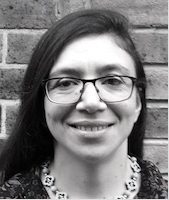
Dr Marina Ezcurra
About
Dr Marina Ezcurra is Group Leader and Lecturer in the Biology of Ageing. She did her PhD in Neuroscience at the Karolinska Institute and the MRC-LMB in Cambridge, and a postdoc at University College London studying the biology of ageing. At University of Kent she runs a research group aiming at understanding molecular mechanisms by which we can promote health in late life and extend the time we spend living healthy and free of disease.
Ageing – A Global Challenge:
Improvements in healthcare and nutrition mean that we now live longer than ever before. With ageing comes ill-health and disability, leading to detrimental effects on the quality of life of the elderly, and in large burdens for societies and healthcare systems globally. This demographic shift is hitting many DAC countries fast and hard. By 2050, 80% of the 2 billion elderly people on this planet will live in the developing world, putting a huge burden on already strained societies. The pace of population ageing around the world is also increasing dramatically. France had almost 150 years to adapt to a change from 10% to 20% in the proportion of the population that was older than 60 years. Countries such as Brazil, China and India will have 25 years to make the same adaptation. In sub-Saharan Africa, the number of people aged over 60 will triple from 2009 to 2050, and noncommunicable diseases such as heart disease, cancer and diabetes are becoming the main causes of mortality. Ageing is now a global issue.
As populations world-wide are rapidly ageing, healthy ageing is key to sustainable global development. Age-related ill-health puts pressure on already constrained health care resources. Population ageing increases the burden of younger generations in providing for the elderly, reducing economic growth and increasing intergenerational inequality. In many countries an increasing burden of care of the elderly is falling on female relatives, resulting in increased gender inequality. Older people face a higher risk of poverty because of lower incomes and small pensions. The current COVID-19 pandemic, which is hitting elderly and frail people the hardest, highlights the importance of healthy ageing and the vulnerability of societies with ageing populations.
Understanding the biological processes underlying ageing and how to achieve sustainable health and wellbeing will have a global impact. Our research addresses the ageing challenges by improving the biological understanding of ageing and ageing interventions, and by working with researchers in other disciplines to evaluate economic, social and medical challenges and capacities, and developing evidence-based solutions.
We are currently working with partners in Thailand to grow our biological understanding of healthy ageing and also to develop research approaches suitable for laboratories in DAC countries, enabling sustainable research capacity in these countries.
View Marina’s full academic profile here.